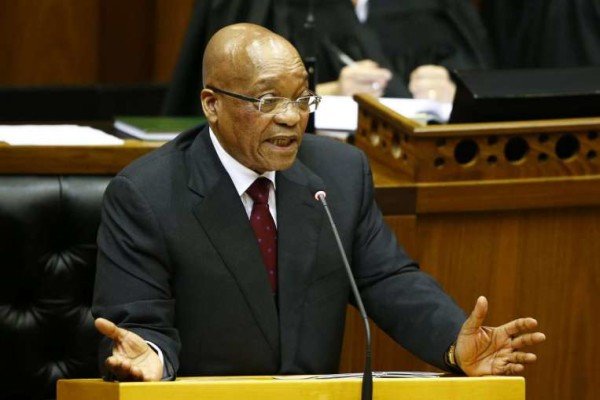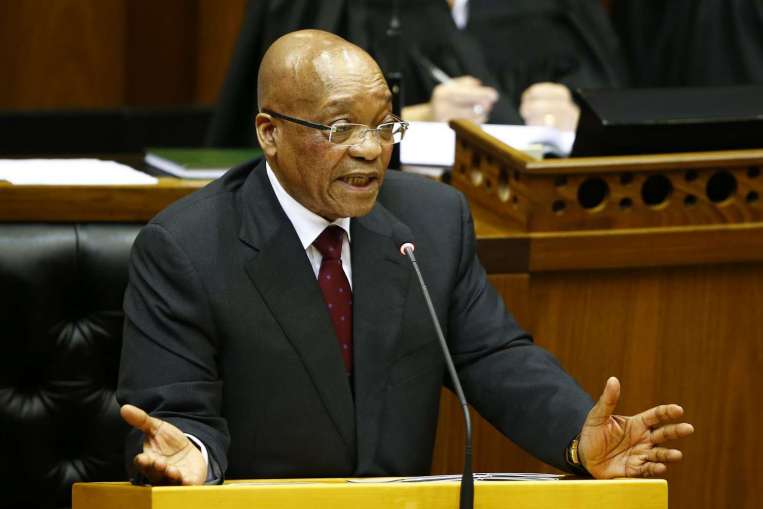South African President Jacob Zuma has made a U-turn in court over his refusal to repay some of the $23 million of state money used to upgrade his Nkandla home.
Jacob Zuma’s lawyer admitted the president was wrong to ignore an anti-corruption watchdog’s report to pay back money spent on features such as a swimming pool.
The opposition brought the case, hoping it will open the way for impeachment proceedings against Jacob Zuma.
Thousands of people protested outside court, shouting “Zuma must fall”.
Police put up a strong show of force, as the protesters, led by Julius Malema’s left-wing Economic Freedom Fighters (EFF), marched to the court in Johannesburg.
The protest was against “corruption and cronyism” in government, the EFF said.
The main opposition Democratic Alliance (DA) also organized its own demonstration.
The governing African National Congress (ANC) denounced the marches as a “political exercise”.
The opposition parties want the Constitutional Court to rule that Jacob Zuma flouted the constitution by ignoring a 2014 report by the anti-corruption watchdog, known as the Public Protector, that he should repay the money, as he had “unduly benefited” from the upgrade.
At the time, the police minister defended the expenditure as necessary security upgrades, saying the swimming pool was, in fact, a fire pool that could be used in the event a fire broke out at the residence in Jacob Zuma’s home village of Nkandla.
An amphitheatre, cattle enclosure and chicken run were also built.
Jacob Zuma’s lawyer, Jeremy Gauntlett, conceded in court that the report was “binding” on the president, and he was prepared to repay the money within 90 days.
However, Jeremy Gauntlett denied that Jacob Zuma had violated the constitution.
The hashtag #PayBackTheMoney, mirroring the slogan used by EFF members to taunt the president, has been trending in South Africa.
The case comes at a difficult time for Jacob Zuma, who has also been under fire over his handling of the finance ministry, after he sacked two ministers in a week in 2015.
Many South Africans also accuse Jacob Zuma’s government of not doing enough to tackle corruption and poverty.
https://www.youtube.com/watch?v=AgLHcCePEXk
